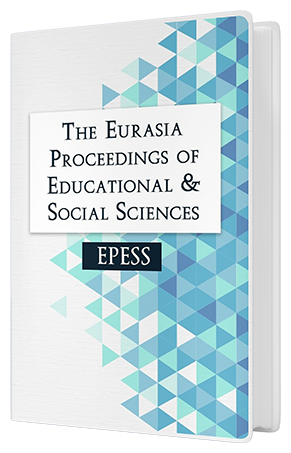A Comprehensive Evaluation of an Internship Program: A 360-Degree Review Involving Students, Host Organization Supervisors, and Faculty Members
DOI:
https://doi.org/10.55549/epess.1413307Keywords:
Professional Universities, Kaishi Professional University, Intern studentsAbstract
In 2017, the School Education Act of Japan introduced a new category of higher education institutions, called "Professional Universities". These institutions are mandated by law to allocate a minimum one-third of the credits necessary for graduation to participate in practical training. During 2022-2023 academic year, the Faculty of Information at Kaishi Professional University (FI/KPU) established a robust internship program. Second-year undergraduate students participated in an internship program for five weeks (equivalent to 150 hours), while third-year students undertook for fifteen weeks (equivalent to 450 hours) with a diverse range of host organizations. The program's goal is to provide students at Kaishi Professional University with real-world exposure, preparing them for successful careers upon graduation. To assess the internship program's performance, the steering committee of internship program collected questionnaire feedback from all stakeholders involved, student interns, host organization supervisors, and faculty members. Analysis of this feedback offers insights into how the internship program influences the professional and personal growth of student interns. This assessment takes the form of a 360-degree review, encompassing perspectives from host organizations, students themselves, and faculty members. The study includes a descriptive analysis examining the correlation between student satisfaction with the internship experience and the host organization's satisfaction with student abilities. The result of this analysis shows how the internship program impacts on professional, personal growth of intern students.Downloads
Published
Issue
Section
License
Copyright (c) 2023 The Eurasia Proceedings of Educational and Social Sciences

This work is licensed under a Creative Commons Attribution-NonCommercial-ShareAlike 4.0 International License.
The articles may be used for research, teaching, and private study purposes. Any substantial or systematic reproduction, redistribution, reselling, loan, sub-licensing, systematic supply, or distribution in any form to anyone is expressly forbidden. Authors alone are responsible for the contents of their articles. The journal owns the copyright of the articles. The publisher shall not be liable for any loss, actions, claims, proceedings, demand, or costs or damages whatsoever or howsoever caused arising directly or indirectly in connection with or arising out of the use of the research material. All authors are requested to disclose any actual or potential conflict of interest including any financial, personal or other relationships with other people or organizations regarding the submitted work.




